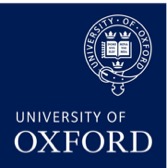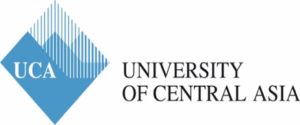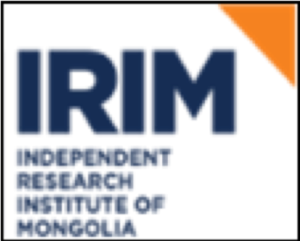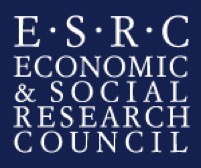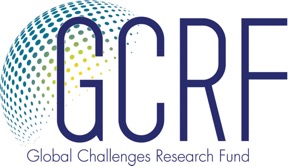Our project developed an impact agenda based on capacity building and identifying policy gaps from primary research. We conducted training, organized knowledge exchanges and workshops and formed lasting partnerships with government, civil society organization and academics which will form the basis of continued work in this area.
Development of Social Impact Assessment Guidelines for Mongolia
A Joint Working Group was established by the initiatives of the Gobi Framework team with a collaboration of the Cabinet Secretariat of Mongolia in January 2020. The main objective of the Working Group was to design a policy proposal and methodology for social impact assessment (SIA) that is currently absent in Mongolia. Under the revisions of environmental impact assessment (EIA) laws, the Government is obliged to adopt both SIA and HIA procedures by the EIA Law of Mongolia Article 7 (2012), which states that:
“The Government shall adopt procedures and methodologies for impact assessment, which shall include issues related to environmental impact assessment, assessment analysis, review and regulation of professional council activities, and social and health impact assessment”.
With additional funding from Oxford’s Policy Engagement Network (OPEN) fellowship, we selected a team of national consultants including social, environmental and legal experts to work closely with Bayarsaikhan Namsrai of Steps without Borders NGO. Our team included D. Tegshbayar, P. Baigalmaa, J. Sanchir, L. Purevdulam and N. Bayarsaikhan. The goal was to develop comprehensive Social Impact Assessment guidelines which would be tailored to the Mongolian context and sensitive to mobile pastoralist livelihoods, traditions and intangible culture.
A hybrid workshop was held from 8-9 June 2020 which introduced the Working Group objectives and concept of the SIA to Mongolian stakeholders. The workshop included Oxford-based professors and experts, and presentations by Mongolian stakeholders over Zoom using simultaneous translation. The English version of the programme is available here. The Mongolian language version of the programme is available here.
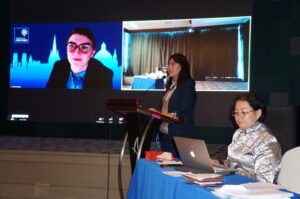
Hybrid Training Workshop Event on SIA in Mongolia, 8-9 June 2020
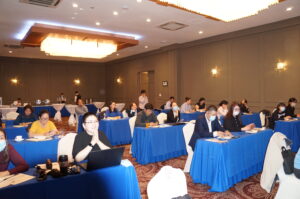
Participants in 8-9 June 2020 hybrid workshop in Ulaanbaatar.
The workshop presented an opportunity to receive early feedback from stakeholders and generate discussion about international impact assessment standards and how these might be implemented in Mongolia.
Over the course of 4 months starting from May 25, 2020, the consultancy team worked intensively in close dialogue and collaboration with the Gobi Framework Co-I’s Ariell Ahearn and Byambabaatar Ichinkhorloo to develop the SIA guidelines. Additional field visits were organized to Dalanjargalan and Airag counties on 4 to 6 July 2020.

Purevdulam facilitating discussion with herder representatives during 4-6 July 2020 field visit.

Bayarsaikhan of Steps without Borders discussing map with herder representative, July 2020
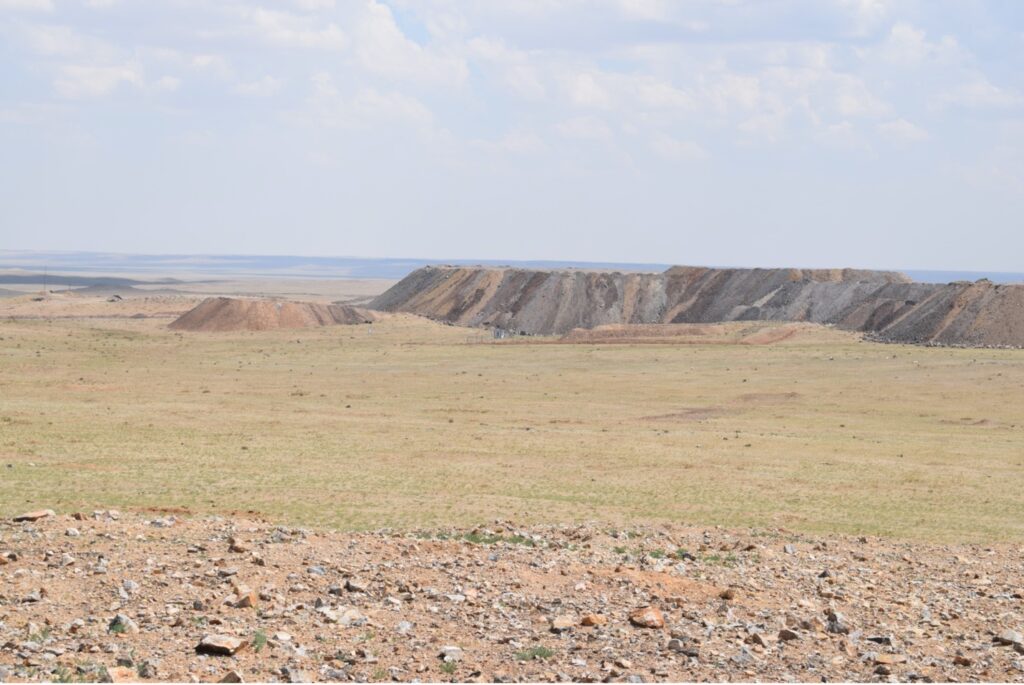
Mining overburden in Dalanjargalan county on pastureland, July 2020.
The first version of the SIA guidelines were reviewed by UK-based experts and Mongolian government, civil society and impact assessment professionals during a hybrid workshop on 28 July 2020.
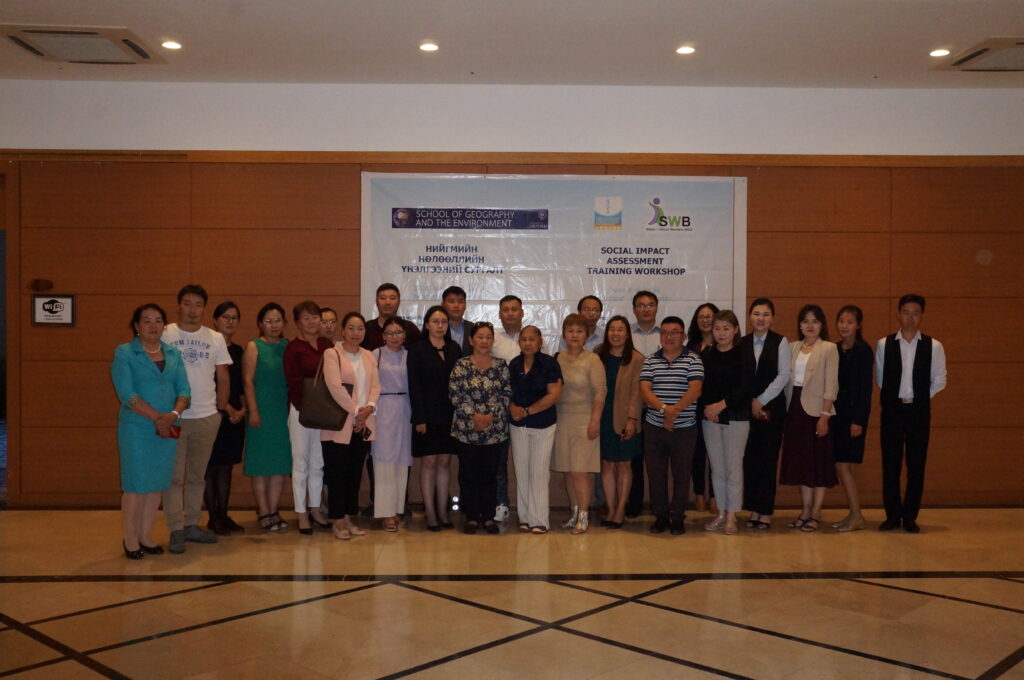
Workshop participants, 28 July 2020
Through a total of 12 meetings and discussions with the participation of representatives from the MoET, MMHI, MoLSP, MRPAM, GASI, authorised ESIA companies, mining license holder EEOs, experts from the ESIA Technical Committee of the MoET, residents of areas of impact, local government officials, and civil society organisations, the consulting team listened to the comments and suggestions from over 200 people, compiled 136 comments and suggestions, and included them in 1) the draft methodology for social impact assessment and 2) the legal review and recommendations for social impact assessment. These documents are available in the publications section of the website.
We submitted the SIA guidelines and legal review to the Cabinet Secretariat in December 2020.
Over the course of 2021, the team has continued to work extensively to disseminate information about the SIA guidelines and work with the Government working group on its approval. A 28 minute video documentary in Mongolian was produced in December 2021 and provides more information about the development of the guidelines for a Mongolian audiance. As of December 2021, the Government working group is developing an implementation process for the guildelines in order to better tie current EIA processes with the proposed SIA process. Further capacity building is planned in 2022 for stakeholders at all levels of government.
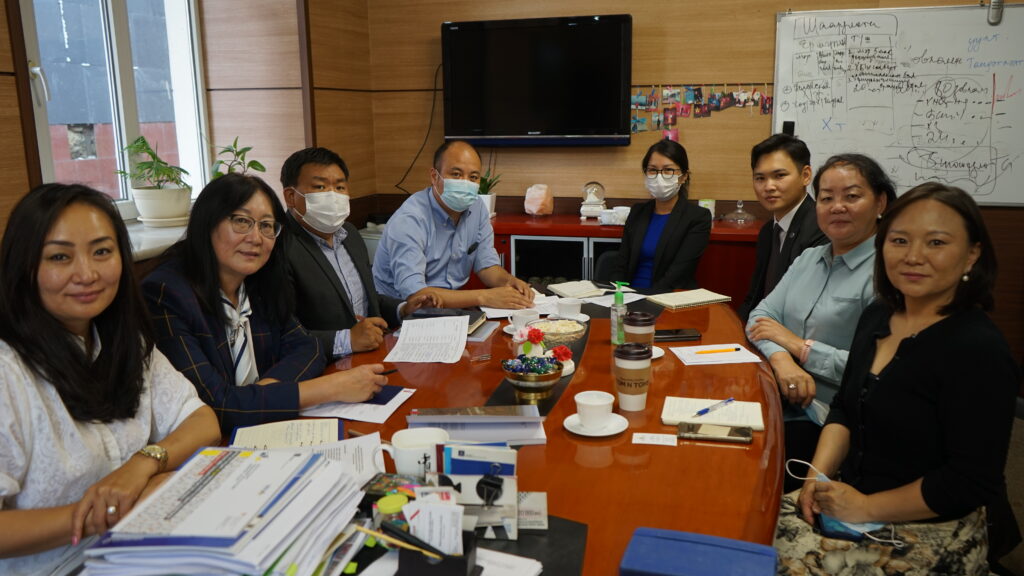
Meeting with Munkhtseren, Ts., Head of the Government Working Group and representatives of the Ministry of Labor and Social Protection and the Ministry of Environment and Tourism in August 2021.
In the summer of 2021, as Covid restrictions loosened in Mongolia, the project team travelled to Omnogovi province to do research on an ongoing road project designed to pass through multiple provinces. Herders in the area did not receive any information about the project and were shocked when bulldozers appeared and started to dig up their pasture lands. Such lack of consultations with local herders and forced evictions are increasingly commonplace. The SIA process is designed as a tool to enable a process of social safegaurding and early involvement of herders in any development that will impact their lives and livelihoods.
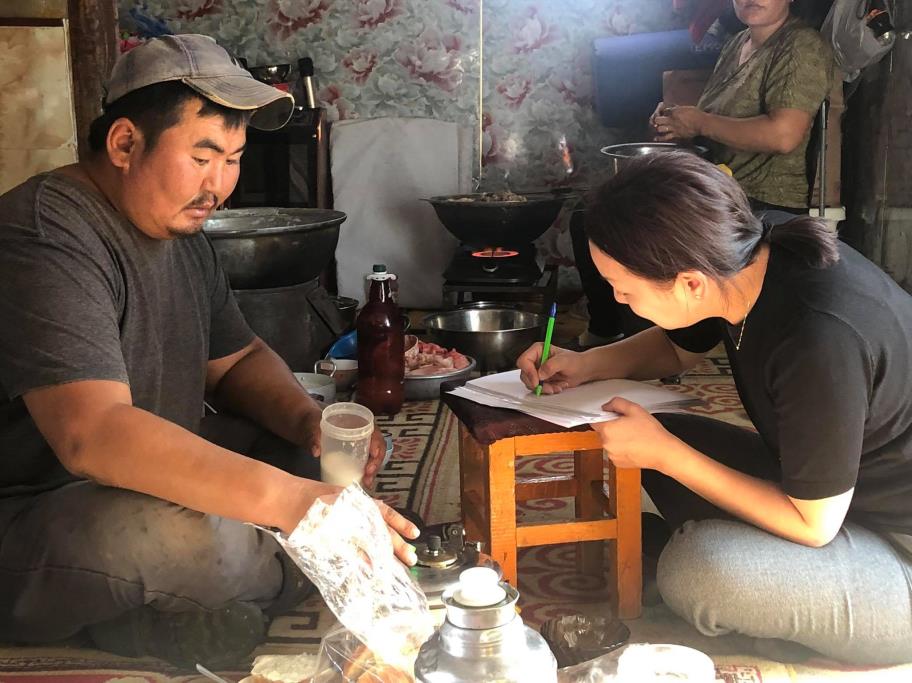
Buyan, G. of LB Partners Law Firm conducting research during a visit to herder households affected by a major road project in Omnogobi province in August 2021.
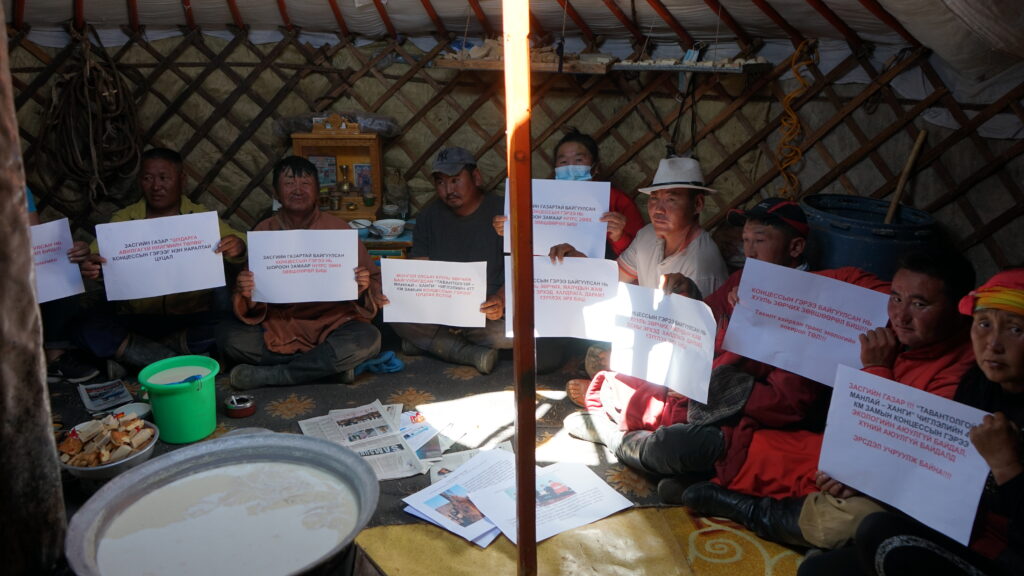
Herders in Omnogobi protesting the road project which is digging up their pasturelands. There has not been any engagement from the road construction company with local herders.
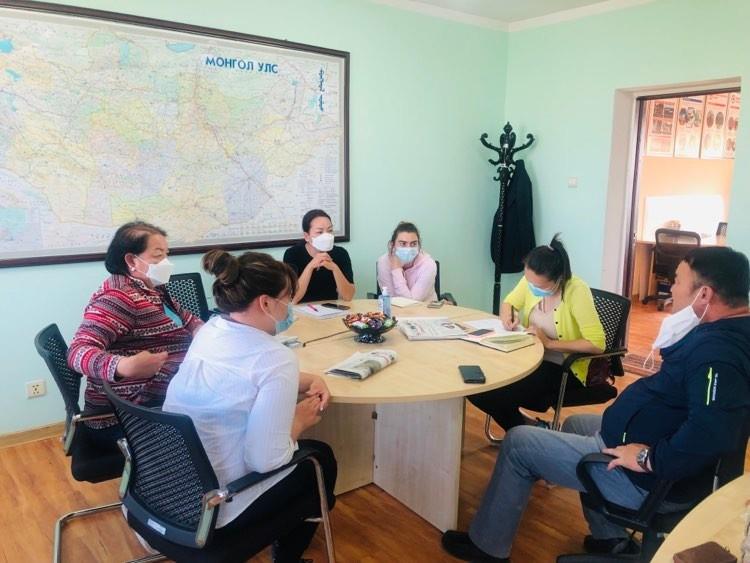
The project team discussing the social impacts of the road project with soum governor in Tsogttsetsii soum, Omnogobi province in August 2021.
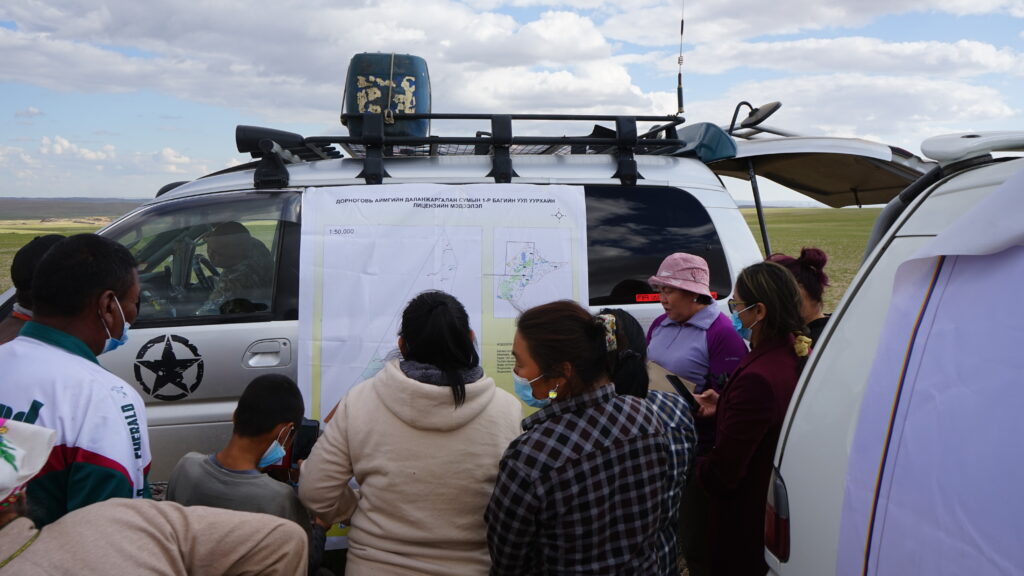
Bayarsaikhan Namsrai discusses a map of mine license areas with herders in Dalanjargalan soum, 2021.
Mobile Phone App in Mongolia and Kyrgyzstan
As part of our project’s impact agenda, we launched an app experiment in Mongolia and Kyrgyzstan to see if mining development information could be effectively shared with rural residents (largely farmers and herders) on mobile phones. In all of our fieldsite locations across Mongolia and Kyrgyzstan, a lack of access to clear and understandable information characterized the experience of residents living in sites of major infrastructure development and extraction.
In Mongolia, herders receive much local information from phone calls, messages and Facebook communications via their mobile phones. Mobile phone service is spotty in places, but ‘ger’ internet and access to the web via phone data is more frequent. Television is also an important source of information but transmits provincial and national news stations. Our experiment wanted to test if we could find a way to provide easily accessible information about local development projects and e-training modules to herders in an affordable way.
We worked with the BlueTel Company to design the app. Our main criteria was that the app had to use little data, could be accessed when out of mobile phone service and on older models of mobile phones. In Mongolia, we collaborated with Delgermaa Boldbaatar of EITI and Bayarsaikhan Namsrai of the Steps without Borders NGO to design and pilot the app in Dalanjargalan soum of Dornogovi province. Due to Covid, discussions occured via Zoom and Google Meet including the enthusiastic involvement of herder and local government participants in Dalanjargalan soum. In Mongolia, the app was named Mergen Boodi after the folk hero of the ‘wise hedgehog’ who was a source of endless information for those seeking answers.
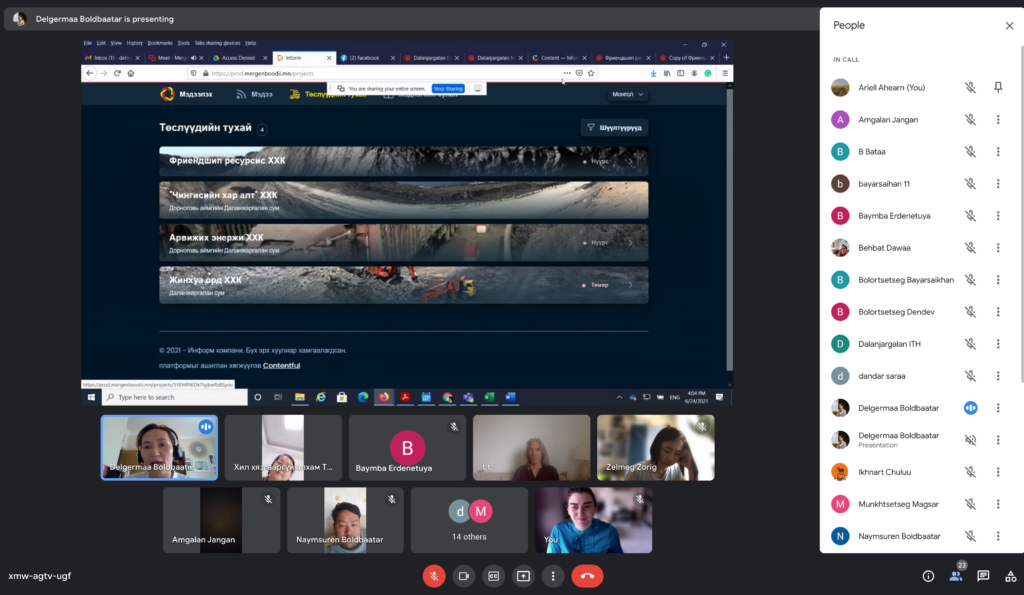
Online discussions about the app design 2021
When we were finally able to visit Dalanjargal soum together in person, we were surprised to learn of the extent of the lack of information and empowerment of local government administrative officials and herders in the area. With almost 80% of the soum’s territory taken by mining, Dalanjargalan is one of the most heavily mined counties in Mongolia.
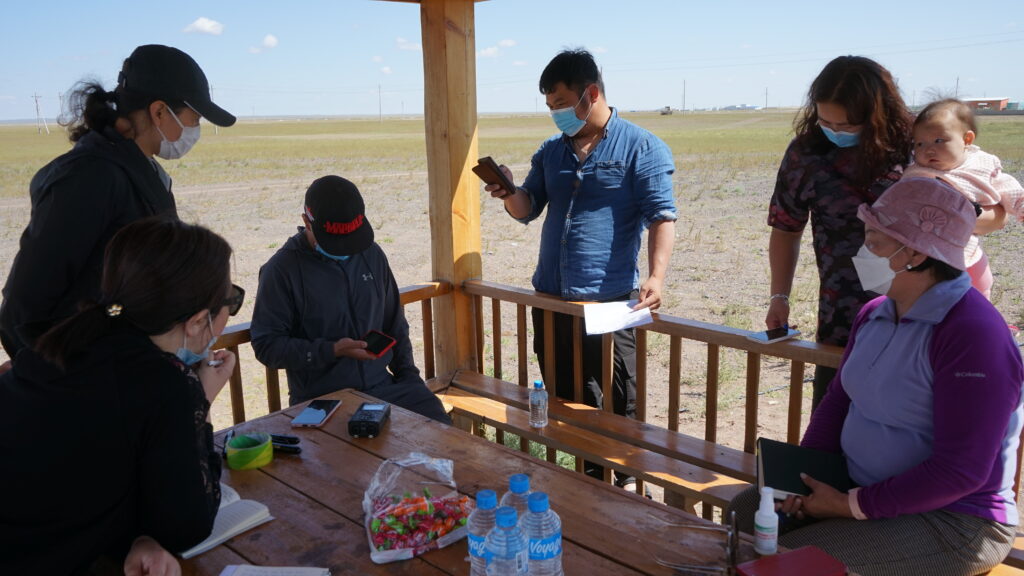
We were surprised that local government officials used the app most frequently, as they too lacked information about the mines operating in their territory. Dalanjargalan summer 2021.
The app consists of three section: ‘news’, ‘project information’ and ‘knowledge hub.’ For the pilot test, the project information only includes the mining companies operating in Dalanjargalan soum. The data sources for the project information is based on EITI reporting and was summarized into a more accessible format for local stakeholders.
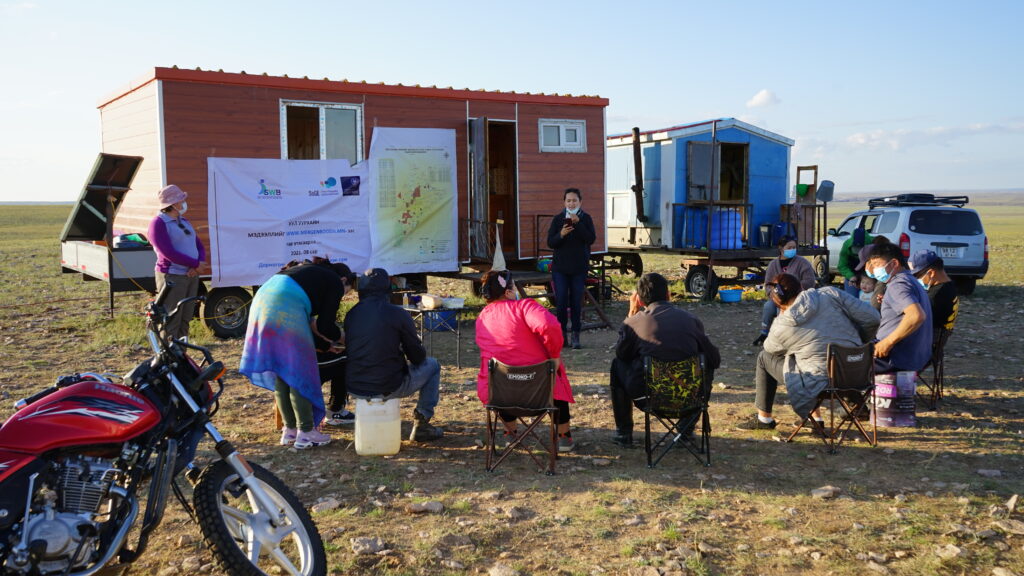
Delgermaa and Bayarsaikhan receiving feedback from herders about the app in Dalanjargalan soum, Mongolia. Dalanjargalan summer 2021.
The Kyrgyz version of the app is still in progress, but their informational videos can be accessed in the Kyrgyz language here.
Training and Knowledge Exchange
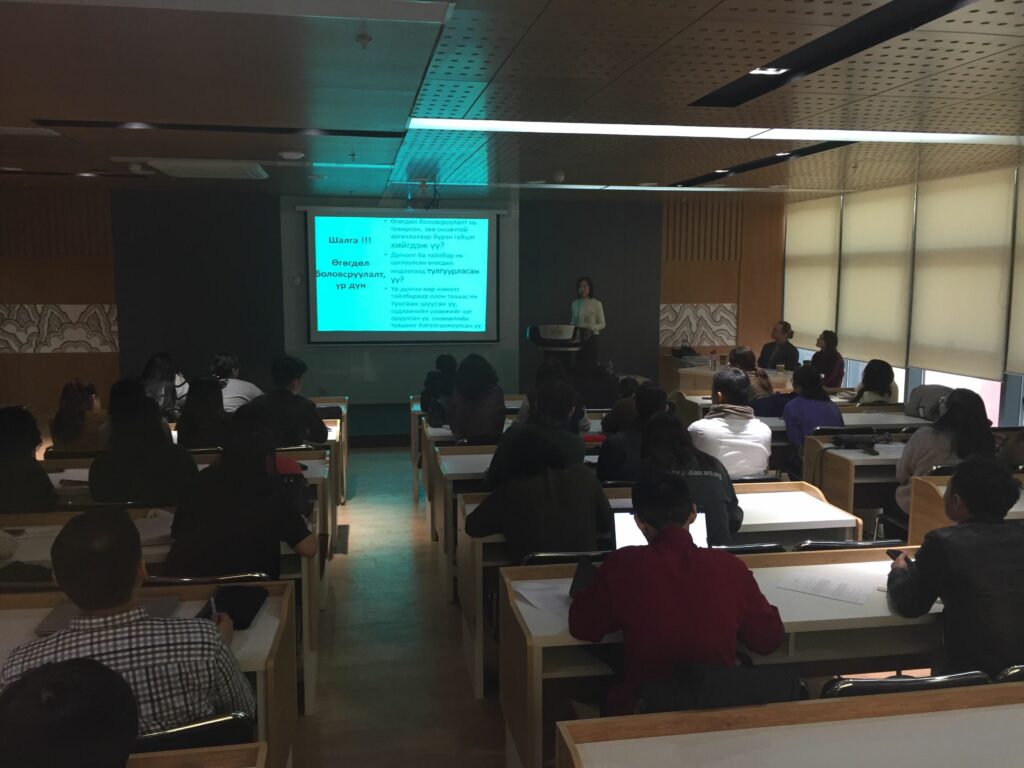
Batkhishig Baival offers a training session on qualitative data analysis and coding in December 2018 at the National University of Mongolia, attracting wide participation from academics and non-academics alike.
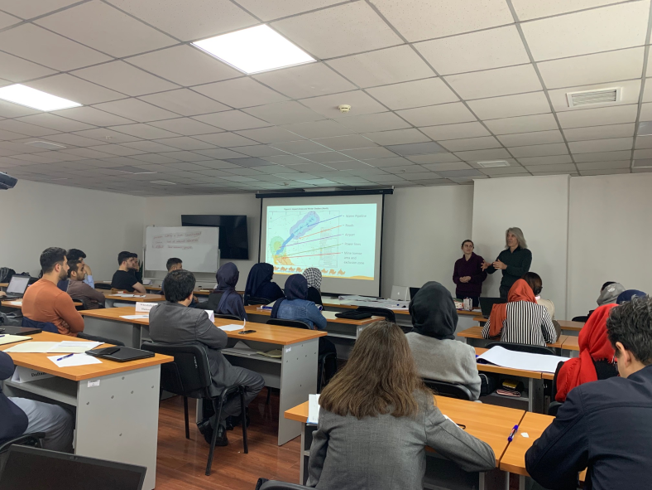
Ariell Ahearn and Troy Sternberg present to Afghan civil servants in Bishkek in 2019.
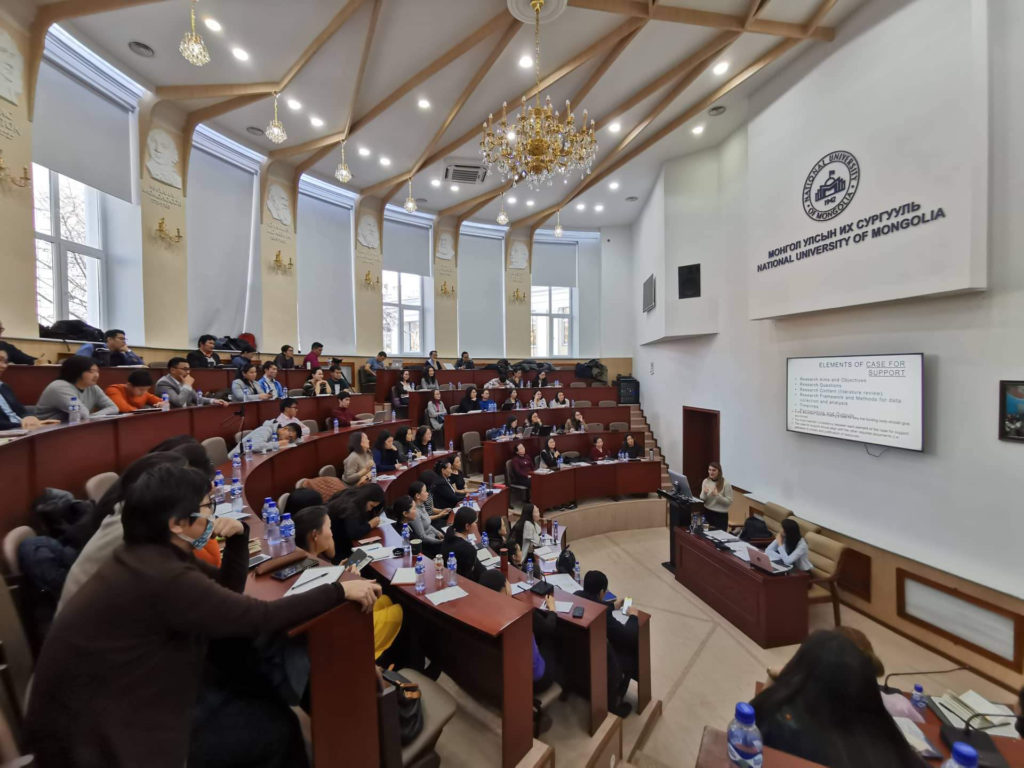
Ariell Ahearn ran a training in January 2020 on academic grant proposal writing at the National University of Mongolia in Ulaanbaatar. The session was also livstreamed and attracted wide interest in Mongolia.
